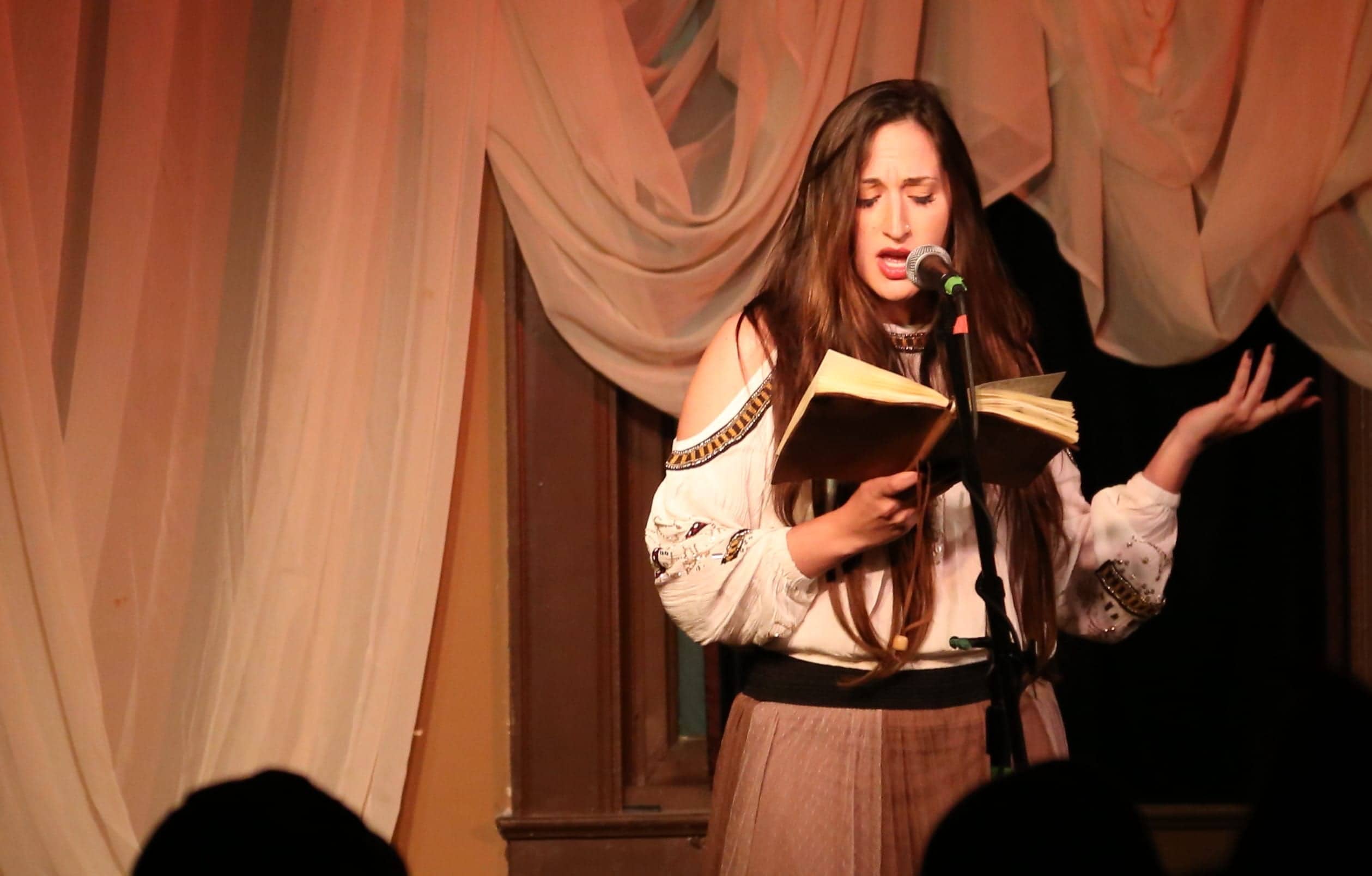A slammin’ good time at Regina Word Up

You should seriously check out slam poetry
Author: Alexandra Antoneshyn
“Applaud the poetry, not the points!” This reminder came frequently from the slam’s host – his way, I think, of defending our table. Despite the fact that we were first-time slammers, my roommate had accepted the responsibility of acting as a judge. The result was that our table was often on the receiving end of bellows of disapproval, frosty glares, and a chorus of “HIGHER.”
When Dacey expressed uncertainty early in the night of how to rank the poets, I told her to consider Dia Davina, the night’s feature and whose videos we had watched online beforehand in preparation, a ten and anyone else’s best efforts an eight on the Davina scale.
Maybe that was bad advice.
I heard about Regina Word Up, a monthly performance poetry series, through third-year computer science student Jessica Tran, who performed that evening and has been for roughly one year. She discovered slam poetry online, but has, since then, found an appreciation for the performed art rather than written poetry.
“I’m a really auditory person, so while I love page poetry, spoken word really appeals to me because I love music, I love rhythm, and I love lyrical genius – so slam amalgamates all of that into one.”
Shayna Stock, who won the Nov. 21 slam, founded Regina Word Up, over two years ago as Word Up Wednesday. Now the third Friday of every month, Word Up features a new talent each night at the Creative City Center. Come 2015, there will be two slams per month.
For those whose knowledge of slam poetry was as extensive as mine before the event – an education by the viral performances that earned a spot on my Facebook newsfeed – Word Up consists of three rounds, in the first of which a maximum of twelve poets compete. The five judges, who are randomly selected from the audience, score the performance, considering composition, delivery, subject matter, and audience reaction. The highest and lowest scores of each performance are dropped while the rest are added to become the poet’s final score for that round. Points are deducted if slammers breach the time limit of three minutes and ten seconds. From the first round, six poets advance and the top two finalists of this round compete to be named the winner. Afterward, poets who did not enter the slam can present on the community stage.
Between the first and second rounds, guest Dia Davina was welcomed to the stage. Based in Vancouver, Davina has been participating in slams for two years and has gained national recognition. They now tour, teaching workshops in schools on poetry writing and performing, but Davina admits they don’t practice “disciplined” writing.
“I write when I feel inspired,” they explained.
Although doubtful that they’d ever perform after attending their first slam in October 2012, nearing Christmas holidays with an empty wallet motivated Davina to join the stage.
“[I] wrote [my brother] a poem and I performed it on stage so that it could be filmed, then I showed him the video… It’s called ‘Bluejay Ice Cream.’”
“[I] was thrilled by winning and competing and that was all very exciting, but it became clear to me very quickly that what I wanted out of slam was just time on stage to say the things that were important to me. I think that the stuff that people don’t always say, for one reason or another, is stuff that’s not talked about… That’s what I try to do,” said Davina.
Tran echoed this sentiment: “[P]oetry, especially spoken poetry, has a great chance to incite a lot of change in social thought, and safely challenge our sense of selves in good ways.”
If you enjoy literary art or social debate, or need to vent, I’d recommend checking out an upcoming slam.









